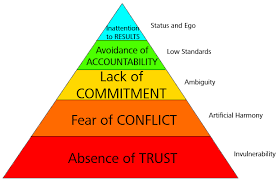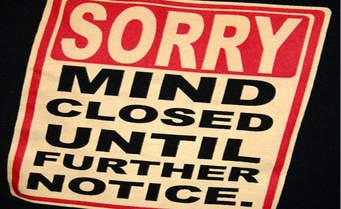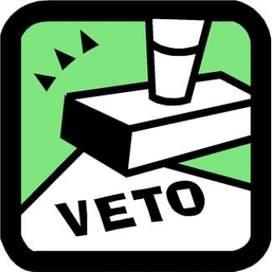This blog post is about how to obstruct problem solving by ineffective thinking.

In these times of positive thinking, readers are attracted by slogans as How to Make the Impossible Possible. In spite of that, we see many times teams that struggle with attaining their goals. But they do work hard! Lots of energy is going into discussing, writing and reporting, yet, no actual results are attained. Most people will not notice this either, and admire the team for their (still ineffective) efforts.
Anthropologists, social-psychologists, psychologists and communication experts will explain it by dysfunctional team relations, ineffective cooperation or learned helplessness. Causes are mentioned like social dynamics, political games, strong ego’s, vested interests or reputations and fear of loosing power.
Often those teams show indecisiveness and an inability to get to real results to learned helplessness. A psychiatrist might perceive this as an effect of the presence of one or more high-conflict persons or behavior of psychopathic and narcissistic characters.

We assume that, if we look at the thinking habits of the team, it will explain in more than 50% of the cases bad team performance. In our approach, it is a lack of thinking skills instead of a psychological deficit that makes the possible impossible.
We believe there are four main categories of thinking habits that obstruct problem solving and getting to real acting results. There may be some overlap.
Fundamentalism

NO-thinking

Intellectualism
A tendency to describe, represent, or mirror reality by adding nuances, more questions, problems, yes-but arguments and the introduction of far-fetched assumptions. In order to describe the problem or challenge all-encompassing, arising from the idea that the function of thought is to describe, represent, or mirror reality instead of an instrument or tool for prediction, problem-solving and action (Pragmatism).

Sometimes intellectualism outs itself as nothing-sayings (meaningless) like:
Of course, we must solve this problem and sure, we are going to
I am glad that we agree that this is a problem
We are going to look seriously into this problem.
Nothing-saying is the favorite communication style of politicians and company board members as they got under public attack. Public affairs officers are trained in this kind of nothing-saying but seemingly comforting strategies. Actually, it should ring all alarm bells!
Juridification

Juridification is the phenomena of framing any problem as a legal issue. Many teams that are not able to achieve results, are defining problems that are fundamentally technical in nature as a legal conflict in interests. They will turn immediate to their legal adviser with questions as “Who is responsible” and “Who has to pay”. No wonder these teams will find themselves many times in costly and long lasting court procedures, while the technical problem is still not solved. They had better instead turn to engineers.
Advertisements